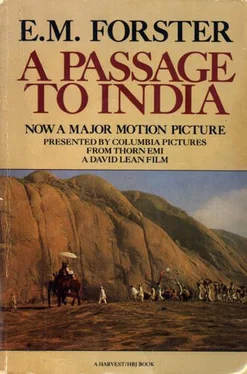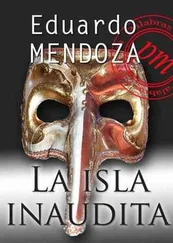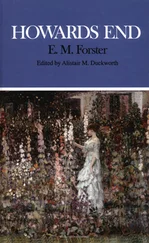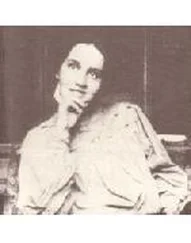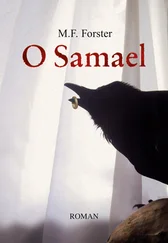Edward Forster - A Passage to India
Здесь есть возможность читать онлайн «Edward Forster - A Passage to India» весь текст электронной книги совершенно бесплатно (целиком полную версию без сокращений). В некоторых случаях можно слушать аудио, скачать через торрент в формате fb2 и присутствует краткое содержание. Город: San Diego, California, ISBN: , Издательство: Harcourt, Brace & World, Inc., Жанр: Классическая проза, на английском языке. Описание произведения, (предисловие) а так же отзывы посетителей доступны на портале библиотеки ЛибКат.
- Название:A Passage to India
- Автор:
- Издательство:Harcourt, Brace & World, Inc.
- Жанр:
- Год:неизвестен
- Город:San Diego, California
- ISBN:0-15-671142-7
- Рейтинг книги:5 / 5. Голосов: 1
-
Избранное:Добавить в избранное
- Отзывы:
-
Ваша оценка:
- 100
- 1
- 2
- 3
- 4
- 5
A Passage to India: краткое содержание, описание и аннотация
Предлагаем к чтению аннотацию, описание, краткое содержание или предисловие (зависит от того, что написал сам автор книги «A Passage to India»). Если вы не нашли необходимую информацию о книге — напишите в комментариях, мы постараемся отыскать её.
A Passage to India — читать онлайн бесплатно полную книгу (весь текст) целиком
Ниже представлен текст книги, разбитый по страницам. Система сохранения места последней прочитанной страницы, позволяет с удобством читать онлайн бесплатно книгу «A Passage to India», без необходимости каждый раз заново искать на чём Вы остановились. Поставьте закладку, и сможете в любой момент перейти на страницу, на которой закончили чтение.
Интервал:
Закладка:
"So do I."
A friendliness, as of dwarfs shaking hands, was in the air. Both man and woman were at the height of their powers—sensible, honest, even subtle. They spoke the same language, and held the same opinions, and the variety of age and sex did not divide them. Yet they were dissatisfied. When they agreed, "I want to go on living a bit," or, " I don't believe in God," the words were followed by a curious backwash as though the universe had displaced itself to fill up a tiny void, or as though they had seen their own gestures from an immense height—dwarfs talking, shaking hands and assuring each other that they stood on the same footing of insight. They did not think they were wrong, because as soon as honest people think they are wrong instability sets up. Not for them was an infinite goal behind the stars, and they never sought it. But wistfulness descended on them now, as on other occasions; the shadow of the shadow of a dream fell over their clear-cut interests, and objects never seen again seemed messages from another world.
"And I do like you so very much, if I may say so," he affirmed.
"I'm glad, for I like you. Let's meet again."
"We will, in England, if I ever take home leave."
"But I suppose you're not likely to do that yet."
"Quite a chance. I have a scheme on now as a matter of fact."
"Oh, that would be very nice."
So it petered out. Ten days later Adela went off, by the same route as her dead friend. The final beat up before the monsoon had come. The country was stricken and blurred. Its houses, trees and fields were all modelled out of the same brown paste, and the sea at Bombay slid about like broth against the quays. Her last Indian adventure was with Antony, who followed her on to the boat and tried to blackmail her. She had been Mr. Fielding's mistress, Antony said. Perhaps Antony was discontented with his tip. She rang the cabin bell and had him turned out, but his statement created rather a scandal, and people did not speak to her much during the first part of the voyage. Through the Indian Ocean and the Red Sea she was left to herself, and to the dregs of Chandrapore.
With Egypt the atmosphere altered. The clean sands, heaped on each side of the canal, seemed to wipe off everything that was difficult and equivocal, and even Port Said looked pure and charming in the light of a rose-grey morning. She went on shore there with an American missionary, they walked out to the Lesseps statue, they drank the tonic air of the Levant. "To what duties, Miss Quested, are you returning in your own country after your taste of the tropics? " the missionary asked. "Observe, I don't say to what do you turn, but to what do you return. Every life ought to contain both a turn and a return. This celebrated pioneer (he pointed to the statue) will make my question clear. He turns to the East, he returns to the West. You can see it from the cute position of his hands, one of which holds a string of sausages." The missionary looked at her humorously, in order to cover the emptiness of his mind. He had no idea what he meant by "turn" and "return," but he often used words in pairs, for the sake of moral brightness. "I see," she replied. Suddenly, in the Mediterranean clarity, she had seen. Her first duty on returning to England was to look up those other children of Mrs. Moore's, Ralph and Stella, then she would turn to her profession. Mrs. Moore had tended to keep the products of her two marriages apart, and Adela had not come across the younger branch so far.
CHAPTER XXX
Another local consequence of the trial was a Hindu-Moslem entente. Loud protestations of amity were exchanged by prominent citizens, and there went with them a genuine desire for a good understanding. Aziz, when he was at the hospital one day, received a visit from rather a sympathetic figure: Mr. Das. The magistrate sought two favours from him: a remedy for shingles and a poem for his brother-in-law's new monthly magazine. He accorded both.
"My dear Das, why, when you tried to send me to prison, should I try to send Mr. Bhattacharya a poem? Eh? That is naturally entirely a joke. I will write him the best I can, but I thought your magazine was for Hindus."
"It is not for Hindus, but Indians generally," he said timidly.
"There is no such person in existence as the general Indian."
"There was not, but there may be when you have written a poem. You are our hero; the whole city is behind you, irrespective of creed."
"I know, but will it last?"
"I fear not," said Das, who had much mental clearness. "And for that reason, if I may say so, do not introduce too many Persian expressions into the poem, and not too much about the bulbul."
"Half a sec," said Aziz, biting his pencil. He was writing out a prescription. "Here you are… Is not this better than a poem?"
"Happy the man who can compose both."
"You are full of compliments to-day."
"I know you bear me a grudge for trying that cas'," said the other, stretching out his hand impulsively. "You are so kind and friendly, but always I detect irony beneath your manner."
"No, no, what nonsense! " protested Aziz. They shook hands, in a half-embrace that typified the entente. Between people of distant climes there is always the possibility of romance, but the various branches of Indians know too much about each other to surmount the unknowable easily. The approach is prosaic. "Excellent," said Aziz, patting a stout shoulder and thinking, "I wish they did not remind me of cow-dung"; Das thought, "Some Moslems are very violent." They smiled wistfully, each spying the thought in the other's heart, and Das, the more articulate, said: "Excuse my mistakes, realize my limitations. Life is not easy as we know it on the earth."
"Oh, well, about this poem—how did you hear I sometimes scribbled?" he asked, much pleased, and a good deal moved—for literature had always been a solace to him, something that the ugliness of facts could not spoil.
"Professor Godbole often mentioned it, before his departure for Mau."
"How did he hear?"
"He too was a poet; do you not divine each other?"
Flattered by the invitation, he got to work that evening. The feel of the pen between his fingers generated bulbuls at once. His poem was again about the decay of Islam and the brevity of love; as sad and sweet as he could contrive, but not nourished by personal experience, and of no interest to these excellent Hindus. Feeling dissatisfied, he rushed to the other extreme, and wrote a satire, which was too libellous to print. He could only express pathos or venom, though most of his life had no concern with either. He loved poetry—science was merely an acquisition, which he laid aside when unobserved like his European dress—and this evening he longed to compose a new song which should be acclaimed by multitudes and even sung in the fields. In what language shall it be written? And what shall it announce? He vowed to see more of Indians who were not Mohammedans, and never to look backward. It is the only healthy course. Of what help, in this latitude and hour, are the glories of Cordova and Samarcand? They have gone, and while we lament them the English occupy Delhi and exclude us from East Africa. Islam itself, though true, throws cross-lights over the path to freedom. The song of the future must transcend creed.
The poem for Mr. Bhattacharya never got written, but it had an effect. It led him towards the vague and bulky figure of a mother-land. He was without natural affection for the land of his birth, but the Marabar Hills drove him to it. Half closing his eyes, he attempted to love India. She must imitate Japan. Not until she is a nation will her sons be treated with respect. He grew harder and less approachable. The English, whom he had laughed at or ignored, persecuted him everywhere; they had even thrown nets over his dreams. "My great mistake has been taking our rulers as a joke," he said to Hamidullah next day; who replied with a sigh: "It is far the wisest way to take them, but not possible in the long run. Sooner or later a disaster such as yours occurs, and reveals their secret thoughts about our character. If God himself descended from heaven into their club and said you were innocent, they would disbelieve him. Now you see why Mahmoud Ali and self waste so much time over intrigues and associate with creatures like Ram Chand."
Читать дальшеИнтервал:
Закладка:
Похожие книги на «A Passage to India»
Представляем Вашему вниманию похожие книги на «A Passage to India» списком для выбора. Мы отобрали схожую по названию и смыслу литературу в надежде предоставить читателям больше вариантов отыскать новые, интересные, ещё непрочитанные произведения.
Обсуждение, отзывы о книге «A Passage to India» и просто собственные мнения читателей. Оставьте ваши комментарии, напишите, что Вы думаете о произведении, его смысле или главных героях. Укажите что конкретно понравилось, а что нет, и почему Вы так считаете.
